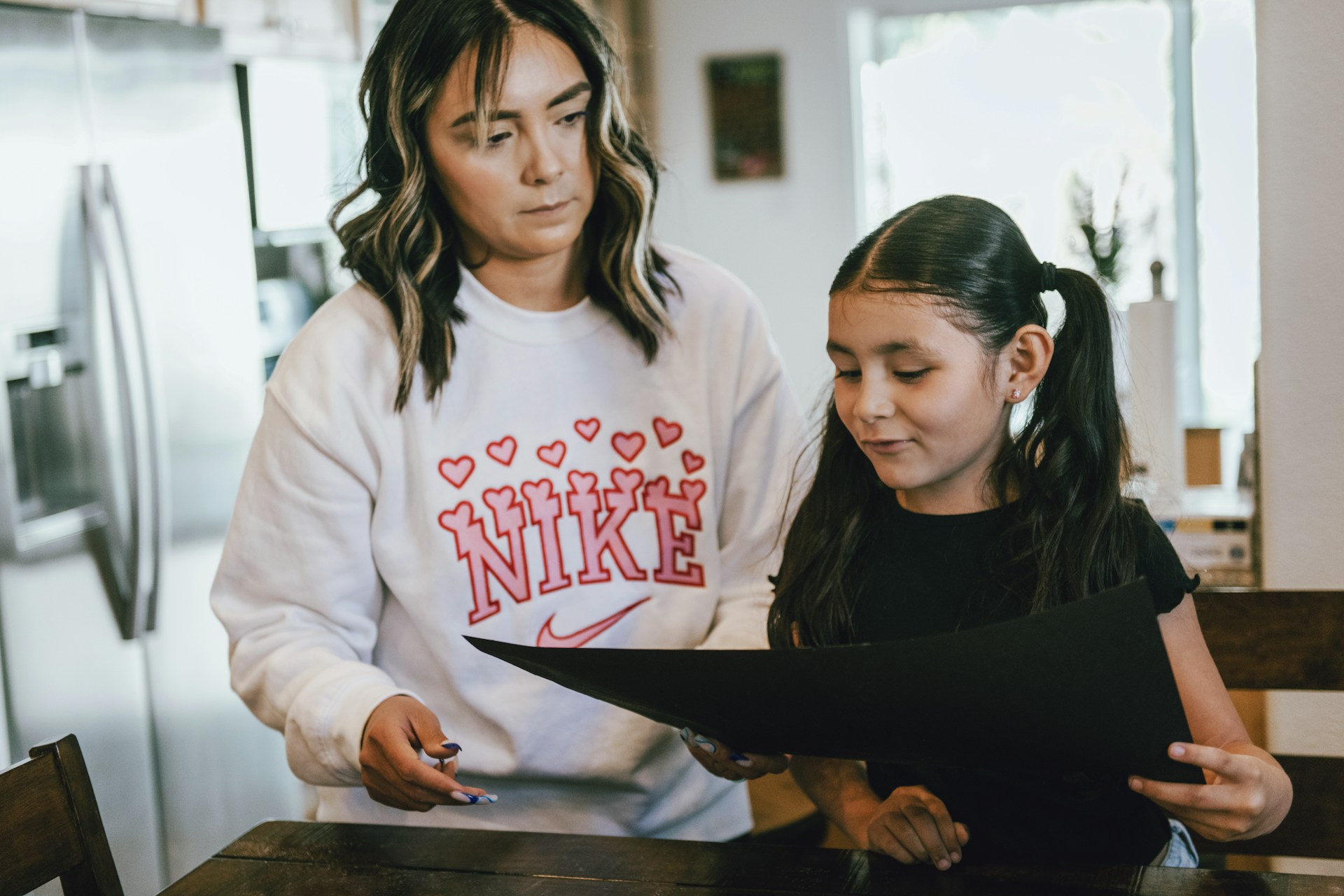When I was a kid, I read a comic book about a criminal foursome exposed to cosmic rays who ended up with super powers. As you may have guessed, the story was part of the Fantastic Four series. One scene in particular stands out; there was a woman whose ability was to convert herself into any gas she chose. Near the end, as their powers are overwhelming and destroying them, her husband is suffocating because his repulse ability is pushing all the oxygen away from him. In a desperate attempt to save him, she converts herself to oxygen, but his power disperses her on the wind like so much vapor. At its worst, this is what a codependent relationship is like.
What is Codependency?
Clinically, codependency is a relationship dynamic where one person subverts himself or herself in service to another, at the expense of their own well-being. A spouse to a substance user who goes out and buys the substance for him or her is codependent. Spouses who make it their job to keep everyone happy in the marriage (or the family) are codependent. Battered spouses who stay in the relationship are codependent, dispersed on the wind like the woman in the story.
 There is such a thing as a harmless, or mostly harmless, codependent relationship, but the impact can be insidious long-term. At the core of codependency is a need to control. Imagine you are sitting reading a book and your mother walks in, thinks there’s not enough light for you to read, and starts fiddling with the curtain and the lamp to try to improve your situation. Nice, right? Compassionate, even. Also codependent. Because she didn’t ask, it is a boundary violation. You might even say, “Ma, it’s fine. You always do this.” Then she makes some comment about excusing her for caring, or some such.
There is such a thing as a harmless, or mostly harmless, codependent relationship, but the impact can be insidious long-term. At the core of codependency is a need to control. Imagine you are sitting reading a book and your mother walks in, thinks there’s not enough light for you to read, and starts fiddling with the curtain and the lamp to try to improve your situation. Nice, right? Compassionate, even. Also codependent. Because she didn’t ask, it is a boundary violation. You might even say, “Ma, it’s fine. You always do this.” Then she makes some comment about excusing her for caring, or some such.
This is how the casual boundary violator most often justifies his or her actions, in the guise of caring. If you generally have good boundaries, this kind of violation is likely to be minimal in impact, but now imagine you have plans to go to a certain event and Mom is dead set against it. She’s been badgering you all day, threating to give you the silent treatment or boycott Thanksgiving, to the point you have blown up at her and retreated to the den to calm down by reading. Now, she comes in and tries to “fix” the lighting. At this point, an argument seems likely.
Healthy Boundaries and Permission
The title above asks, “Do we all need healthy boundaries?” Only if we want to experience emotional growth and health. When someone crosses our boundaries, they make a bid to steal a portion of our adult agency. Adult agency is the part of us that allows us to make choices, captain our own ship, be our own person.
The insidious subliminal message of Mom reflexively fixing our reading light is, “You’re too stupid to care for yourself.” Mom would say, “Ridiculous. If there’s any underlying message, it’s that I care about you.” Feeling one down, and violated, you might reply, “Maybe I want to ruin my eyes, did you ever think of that?” This now comes out of a young place. Why? We’ve had our adult agency undermined.
If we have good boundaries, we can retain our hold on our adult agency, in which case, the reply might be, “That’s fine, Ma. In the future, please ask me before doing that.” Asking for permission honors adult agency, and makes the transaction mutual, and therefore, healthy, for both parties.
 Here’s another example. Think about asking a teenage son to cleanup his room. You are trying to elicit or coerce behavior out of an unwilling subject, so the interaction is inherently codependent. This is where calm conversation resulting in mutual agreement can pave the way for a healthier interaction. Then when the room is messy, instead of the directive, “Clean up your room,” we have some language that honors adult agency, “We agreed you were going to keep your room clean.” A simple statement of understanding. No coercion, no codependency. Of course, if he refuses, that’s a different conversation.
Here’s another example. Think about asking a teenage son to cleanup his room. You are trying to elicit or coerce behavior out of an unwilling subject, so the interaction is inherently codependent. This is where calm conversation resulting in mutual agreement can pave the way for a healthier interaction. Then when the room is messy, instead of the directive, “Clean up your room,” we have some language that honors adult agency, “We agreed you were going to keep your room clean.” A simple statement of understanding. No coercion, no codependency. Of course, if he refuses, that’s a different conversation.
Realistically, we have only so much bandwidth for conversations at this level of this complexity, so not surprisingly it is natural to allow some codependency to creep in. It’s when it becomes habitual that it starts being a problem. Good parenting and marriage relations are hard work, and we are not always at our best.
The temptation to just take care of a problem ourselves, rather than engage the nuisance of a conversation, can be very strong. Put the mallet down. No need to beat yourself up for not having the bandwidth. Just be aware when you are being codependent and be thinking about how you can undo that going forward.
Conversational Tools for Codependent Relationships
A boundary is difficult to enforce if it isn’t discussed. You have to talk about it if you want someone to honor it. A nice formula for conversation might look something like this:
When you (said or did) ____________, what I made up about it is ______________, and I felt _________.
In the context of our well-meaning light-bringer earlier, “Mom, when you adjusted the lamp without asking, what I made up about it is you think I’m too dumb to do it myself, and I felt ashamed.” Now, Mom is going to have any of a number of reactions to this:
“You’re too sensitive.” – Mom feels like a jerk for shaming you, and so makes herself feel better by dismissing your feelings and further shaming you.
“Well, forgive me for trying to help.” – Mom again feels like a jerk, or may generally feel one down, and so she goes to “woe is me” as a means to soothe those unpleasant feelings, and put you on the defensive (because she feels one down).
“You’re going to ruin your eyes.” – Mom offers a factual reason for her codependent behavior, completely bypassing her emotional impact on you, avoiding the actual subject altogether.
“You’re ashamed because I fixed your light?” – This is a reasonable question. Said with a sneer, it’s another form of dismissal. Said with genuine curiosity, it’s an opening for discussion. “I’m just telling you how it lands on me. Maybe next time you could ask if I want the light fixed.”
This may sound like a lot of work just to communicate, but we do not typically have superior communication skills in our casual interactions with loved ones. You can put it in the context of having a better relationship, for both you and the other person. You care enough to communicate clearly, and try to repair things before they become a problem.
Codependent Relationship Formation
Imagine a young boy, raised in a family where the mother has a short temper. He has had countless experiences where she is smiling one minute and angry the next. It doesn’t take much to set her off, so his youth is spent trying to make everything perfect for her so she won’t get mad.
 He grows up into a young adult who seems very attentive and compassionate, and in fact, he is. He holds doors open for people, helps them across the street, listens, and cares for the people in his life. When he falls in love and gets married, however, his spouse gradually realizes he is living in a near constant state of mild panic. What she mistook for mild over-attentiveness, which was kind of nice at first, is actually codependent panic.
He grows up into a young adult who seems very attentive and compassionate, and in fact, he is. He holds doors open for people, helps them across the street, listens, and cares for the people in his life. When he falls in love and gets married, however, his spouse gradually realizes he is living in a near constant state of mild panic. What she mistook for mild over-attentiveness, which was kind of nice at first, is actually codependent panic.
Internally, he is desperately afraid that he will do the wrong thing and make her angry, and if she is angry, she will leave him. When the wife finally gets fed up with the cloying pressure of his neediness to make everything okay for her, it’s a self-fulfilling prophecy. He’s done something wrong and now she’s angry. Only one of many possible examples, this is nevertheless a playing field they will have to get off of if they are going to experience growth and healing.
Working through Codependency
If you have been enmeshed in a codependent relationship for a long time, usually with one member constantly rolling over the other’s boundaries, once the problem is known and work is underway, the violated partner is going to need some space.
At this point in your recovery, assumptions are the enemy. We make up stories about people all the time, imagining we can interpret their thoughts by the look on their face, or based on past behavior. It is a normal defensive structure to try to anticipate and thereby understand a situation before going in. Unfortunately, it is also the bedrock of a codependent relationship.
If we abandon assumptions, we are forced to deal with what is actually in the room, rather than our fantasy about it. If your spouse drops something on the floor right in front of you, ask permission before you pick it up, “Would you like me to pick that up?” It sounds silly, but this is how we practice not rolling over boundaries and protecting the other person’s adult agency.
Maybe you are in the habit of bringing your spouse coffee every morning. This can be a lovely, caring thing you do every day, but during recovery it is better to ask each time, “Do you want coffee?” Returning choice to a person honors their adult agency and gradually undoes the codependent enmeshment.
Asking these simple questions may seem like a ridiculous or even impossible task. If your codependent behavior is coded in your mind as compassion, then outrage at the thought should come as no surprise. “This is how I show my love for the other person,” may be the thought, but it is not loving to repeatedly steal another person’s choice in big and small ways. Taking choice rolls over adult agency.
 Imagine you lovingly bring a cup of coffee to your spouse without asking. What if the spouse says, “Actually, I think I’m having tea.” Are your feelings hurt? Do you feel foolish, unvalued, unloved? You spouse is exercising his or her God-given right to their adult agency. If you feel disrespected, that is really good data about the underlying codependent structure feeding your behavior. If you are able to shrug off the rejection of your gesture, then it likely was offered in an emotionally healthy way.
Imagine you lovingly bring a cup of coffee to your spouse without asking. What if the spouse says, “Actually, I think I’m having tea.” Are your feelings hurt? Do you feel foolish, unvalued, unloved? You spouse is exercising his or her God-given right to their adult agency. If you feel disrespected, that is really good data about the underlying codependent structure feeding your behavior. If you are able to shrug off the rejection of your gesture, then it likely was offered in an emotionally healthy way.
Before you do something “to be nice,” ask yourself the question, “How will I feel if my offer is rejected?” If the answer is anything other than calm, be curious about your true motivation. Ultimately, it is always better to ask permission.
Patience in the Struggle
We are the way we are because of the trauma or lack thereof we experienced as children, and sometimes subsequently as adults. Codependency functions as a defensive structure, giving us the illusion of security and control in our relationships, so we can imagine the person will love us and not leave us. These are powerful motivators, life and death issues for a child, and so even though we are aware of the defenses and their impact on current functioning, they do not go quietly into the night.
We can gradually train ourselves to do emotional business differently, but likely will benefit from psychodynamic psychotherapy to understand our underlying structure, and begin to welcome back the disenfranchised young parts of ourselves that become frozen and separated through trauma.
Desperation is the red flag that says we are operating out of a young place. Frantically trying to elicit an emotional response from a loved one is not developmentally an adult thing to do. When anxiety is up, the capacity for thought and bonding go down. An adult position keeps feeling in perspective.
Codependency masquerades as compassion, and it may have been modeled for us expertly or forced upon us in our family of origin. If we are willing to work patiently to move toward growth and health, we can choose to do our emotional business differently and reclaim our adult agency in areas of our life where we have been stuck in young ways of relating.
“Story of the guy who would not share,” courtesy of Hammerin Man, Flickr CreativeCommons (CC BY 2.0); “Father on the Beach,” courtesy of rian, ABSFreePic.com, Pixabay.com, CC0 Public Domain License; “Family Outing,” courtesy of EME, pixabay.com, CC0 Public Domain License; “Still Waters,” courtesy of Adam Sherez, unsplash.com, CC0 License






